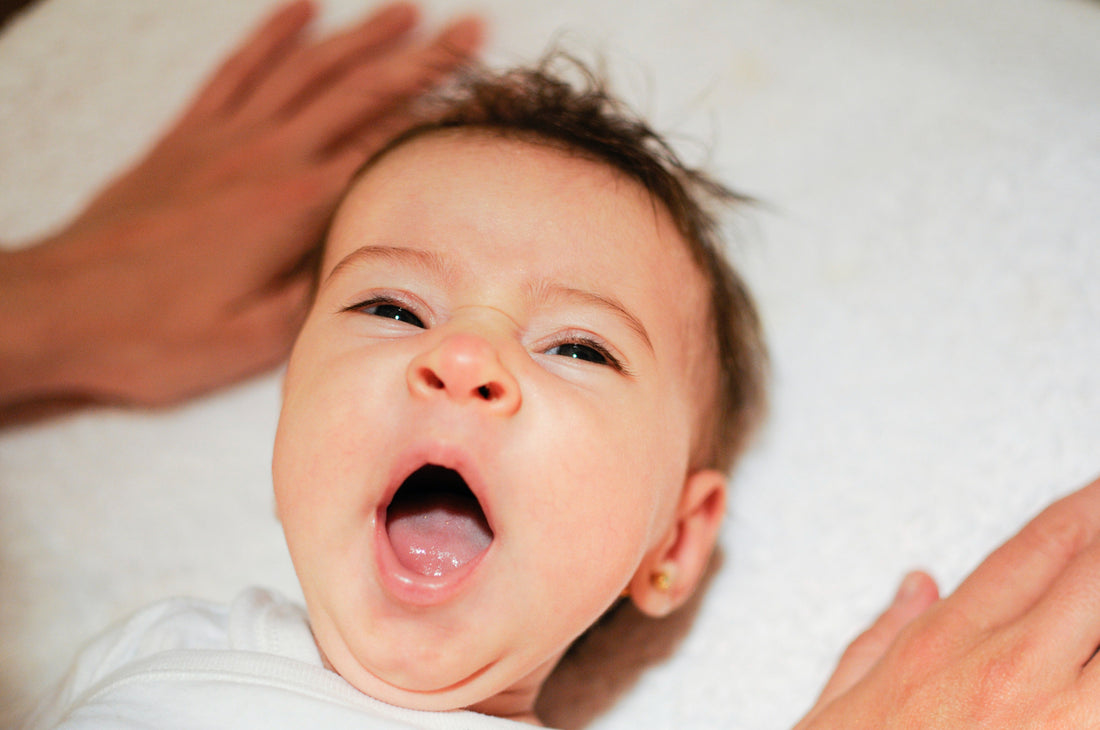Often, hiccuping occurs before birth as a newborn reflex. The cuteness of these little things might leave you wondering whether this is normal or not. Almost always, hiccups are harmless and totally normal.
Check out these facts and insights from pediatric experts to find out what causes baby hiccups and how to deal with them.
What Causes Hiccups in Babies?
Any time the diaphragm is tickled, like when a baby swallows suddenly or breathes irregularly, the vocal cords close rapidly, producing the distinctive “hic! ” sound we know so well.
Kelly Fradin, M.D., a New York City-based Hiccups in Newborns pediatrician and mother of two, says the diaphragm nerve in babies is still developing. During a hiccup, you can see the baby's brain and spinal cord rapidly developing from the outside, which makes it a fascinating topic to discuss with parents.
Newborn hiccups may play a role in healthy brain development, according to a study published in Clinical Neurophysiology in 2019. In fact, hiccups serve a purpose - to teach babies to monitor their breathing muscles so, eventually, breathing can be voluntarily controlled by moving the diaphragm.

Babies born prematurely are more susceptible to hiccups
We know now that babies born prematurely spend around 15 minutes a day hiccupping due to the developing reflex.
A premature Hiccups in Newborns may occur if they are having difficulty coordinating their breathing and swallowing, says Ann Anderson Berry, M.D. "Preterm infants who hiccup during an attempt to feed are almost never able to finish the feeding," Berry says.
In the NICU, some babies work with feeding specialists (also known as speech therapists) or lactation specialists, which is important due to the mental health effects of early feeding difficulties.
Hiccups in Newborns: Remedies
In medicine, hiccups are called singultus, which means catching in the act of sobbing. Despite the fact that hiccups are generally harmless, if you believe your baby is uncomfortable, try these strategies:
Make sure your baby is upright and burps if necessary. If your baby is holding upright, gently patting their back may relieve the presence of an air bubble in the stomach. The hiccup may function as a mechanism that removes swallowed gas from the stomach.
Give the baby something to suck on, such as a pacifier. By relaxing the diaphragm, it may be possible to eliminate those hiccups. Don't force your baby to accept a pacifier if he or she doesn't want one.
Grip water drops are a good example. Although research rarely supports their effectiveness, many parents swear by them. Dr. John Vann, a pediatrician at Omaha Children's Clinic in Omaha, recommends weighing the risks and benefits of gripe water and talking to your doctor about your baby's symptoms. He advises parents to see a doctor if their 1-month-old is up all night.
You should let them be. It will pass as well. As your baby grows older, hiccuping usually decreases. Tamara Hubbard, a licensed clinical professional counselor from Illinois, vividly recalls her son hiccuping in her womb during her first pregnancy. Hubbard says she talked soothingly to her son until he stopped. While he continued to get hiccups frequently as an infant, he doesn't get them any more now that he's 14. I feel instantly connected to him when he does this.
How Not to Handle Newborn Hiccups
Sneezing and blinking are also reflexes, so there is no "cure" for hiccups. As adults, we often try strange home remedies (or scare tactics) that are downright dangerous and ineffective for babies. There is no holding of breath, breathing into paper bags, pulling on the tongue, or putting a penny on the forehead.
When to Talk With Your Baby’s Doctor
Your pediatrician Hiccups in Newborns should be consulted if you have concerns about hiccups. Oftentimes, something else is going on, and you should trust your instincts. Nonetheless, consider baby hiccups as part of the development of a healthy brain.
Also Read This Artice: Science-based tips for sleeping an overtired baby

